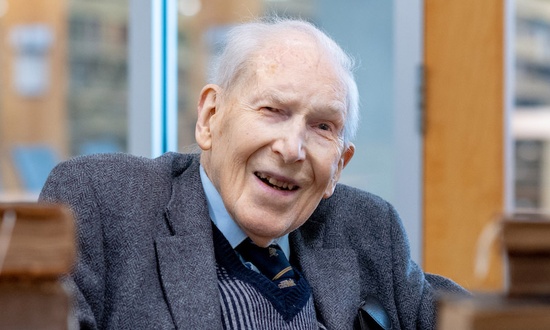Excerpted from Knowing God by J. I. Packer. Copyright © 1973 by J. I. Packer.
Chapter One: THE STUDY OF GOD
On January 7, 1855, the minister of New Park Street Chapel, Southwark, England, opened his morning sermon as follows:
It has been said by someone that "the proper study of mankind is man." I will not oppose the idea, but I believe it is equally true that the proper study of God's elect is God; the proper study of a Christian is the Godhead. The highest science, the loftiest speculation, the mightiest philosophy, which can ever engage the attention of a child of God, is the name, the nature, the person, the work, the doings, and the existence of the great God whom he calls his Father.There is something exceedingly improving to the mind in a contemplation of the Divinity. It is a subject so vast, that all our thoughts are lost in its immensity; so deep, that our pride is drowned in its infinity. Other subjects we can compass and grapple with; in them we feel a kind of self-content, and go our way with the thought, "Behold I am wise." But when we come to this master science, finding that our plumbline cannot sound its depth, and that our eagle eye cannot see its height, we turn away with the thought that vain man would be wise, but he is like a wild ass's colt; and with solemn exclamation, "I am but of yesterday, and know nothing." No subject of contemplation will tend more to humble the mind, than thoughts of God....
But while the subject humbles the mind, it also expands it. He who often thinks of God, will have a larger mind than the man who simply plods around this narrow globe.... The most excellent study for expanding the soul, is the science of Christ, and Him crucified, and the knowledge of the Godhead in the glorious Trinity. Nothing will so enlarge the intellect, nothing so magnify the whole soul of man, as a devout, earnest, continued investigation of the great subject of the Deity.
And, whilst humbling and expanding, this subject is eminently consolatory. Oh, there is, in contemplating Christ, a balm for every wound; in musing on the Father, there is a quietus for every grief; and in the influence of the Holy Ghost, there is a balsam for every sore. Would you lose your sorrow? Would you drown your cares? Then go, plunge yourself in the Godhead's deepest sea; be lost in his immensity; and you shall come forth as from a couch of rest, refreshed and invigorated. I know nothing which can so comfort the soul; so calm the swelling billows of sorrow and grief; so speak peace to the winds of trial, as a devout musing upon the subject of the Godhead. It is to that subject that I invite you this morning.
These words, spoken over a century ago by C. H. Spurgeon (at that time, incredibly, only twenty years old) were true then, and they are true now. They make a fitting preface to a series of studies on the nature and character of God.
Who Needs Theology?
But wait a minute," says someone, "tell me this. Is our journey really necessary? In Spurgeon's day, we know, people found theology interesting, but I find it boring. Why need anyone take time off today for the kind of study you propose? Surely a layperson, at any rate, can get on without it? After all, this is the twentieth century, not the nineteenth!"
A fair question!—but there is, I think, a convincing answer to it. The questioner clearly assumes that a study of the nature and character of God will be impractical and irrelevant for life. In fact, however, it is the most practical project anyone can engage in. Knowing about God is crucially important for the living of our lives. As it would be cruel to an Amazonian tribesman to fly him to London, put him down without explanation in Trafalgar Square and leave him, as one who knew nothing of English or England, to fend for himself, so we are cruel to ourselves if we try to live in this world without knowing about the God whose world it is and who runs it. The world becomes a strange, mad, painful place, and life in it a disappointing and unpleasant business, for those who do not know about God. Disregard the study of God, and you sentence yourself to stumble and blunder through life blindfolded, as it were, with no sense of direction and no understanding of what surrounds you. This way you can waste your life and lose your soul.
Recognizing, then, that the study of God is worthwhile, we prepare to start. But where shall we start from?
Clearly, we can only start from where we are. That, however, means setting out in a storm, for the doctrine of God is a storm center today. The so-called debate about God, with its startling slogans—"our image of God must go"; "God is dead"; "we can sing the creed, but we can't say it"—is raging all around us. We are told that "God-talk," as Christians have historically practiced it, is a refined sort of nonsense, and knowledge about God is strictly a nonentity. Types of teaching which profess such knowledge are written off as outmoded—"Calvinism,' "fundamentalism," "Protestant scholasticism," "the old orthodoxy." What are we to do? If we postpone our journey till the storm dies down, we may never get started at all.
My proposal is this. You will know how Bunyan's pilgrim, when called back by his wife and children from the journey on which he was setting out, "put his fingers in his ears, and ran on crying, Life, Life, Eternal Life." I ask you for the moment to stop your ears to those who tell you there is no road to knowledge about God, and come a little way with me and see. After all, the proof of the pudding is in the eating, and anyone who is actually following a recognized road will not be too worried if he hears nontravelers telling each other that no such road exists.
Storm or no storm, then, we are going to start. But how do we plot our course?
Five basic truths, five foundation principles of the knowledge about God which Christians have, will determine our course throughout. They are as follows:
- God has spoken to man, and the Bible is his Word, given to us to make us wise unto salvation.
- God is Lord and King over his world; he rules all things for his own glory, displaying his perfections in all that he does, in order that men and angels may worship and adore him.
- God is Savior, active in sovereign love through the Lord Jesus Christ to rescue believers from the guilt and power of sin, to adopt them as his children and to bless them accordingly.
- God is triune; there are within the Godhead three persons, the Father, the Son and the Holy Spirit; and the work of salvation is one in which all three act together, the Father purposing redemption, the Son securing it and the Spirit applying it.
- Godliness means responding to God's revelation in trust and obedience, faith and worship, prayer and praise, submission and service. Life must be seen and lived in the light of God's Word. This, and nothing else, is true religion.
In the light of these general and basic truths, we are now going to examine in detail what the Bible shows us of the nature and character of the God of whom we have been speaking. We are in the position of travelers who, after surveying a great mountain from afar, traveling around it, and observing how it dominates the landscape and determines the features of the surrounding countryside, now approach it directly, with the intention of climbing it.
The Basic Themes
What is the ascent going to involve? What are the themes that will occupy us?
We shall have to deal with the Godhead of God, the qualities of deity which set God apart from humans and mark the difference and distance between the Creator and his creatures: such qualities as his self-existence, his infinity, his eternity, his unchangeableness. We shall have to deal with the powers of God: his almightiness, his omniscience, his omnipresence. We shall have to deal with the perfections of God, the aspects of his moral character which are manifested in his words and deeds—his holiness, his love and mercy, his truthfulness, his faithfulness, his goodness, his patience, his justice. We shall have to take note of what pleases him, what offends him, what awakens his wrath, what affords him satisfaction and joy.
For many of us, these are comparatively unfamiliar themes. They were not always so to the people of God. There was a time when the subject of God's attributes (as it was called) was thought so important as to be included in the catechism which all children in the churches were taught and all adult members were expected to know. Thus, to the fourth question in the Westminster Shorter Catechism, "What is God?" the answer read as follows: "God is a Spirit, infinite, eternal, and unchangeable, in his being, wisdom, power, holiness, justice, goodness, and truth." This statement the great Charles Hodge described as "probably the best definition of God ever penned by man."
Few children today, however, are brought up on the Westminster Shorter Catechism, and few modern worshipers will ever have heard a series of sermons covering the doctrine of the divine character in the way that Charnock's massive Discourses on the Existence and Attributes of God (1682) did. Few, too, will ever have read anything simple and straightforward on the subject of the nature of God, for scarcely any such writing exists at the present time. We can expect, therefore, that an exploration of the themes mentioned above will give us much that is new to think about and many fresh ideas to ponder and digest.
Knowledge Applied
For this very reason we need, before we start to ascend our mountain, to stop and ask ourselves a very fundamental question—a question, indeed, that we always ought to put to ourselves whenever we embark on any line of study in God's holy book. The question concerns our own motives and intentions as students. We need to ask ourselves: What is my ultimate aim and object in occupying my mind with these things? What do I intend to do with my knowledge about God, once I have it? For the fact that we have to face is this: If we pursue theological knowledge for its own sake, it is bound to go bad on us. It will make us proud and conceited. The very greatness of the subject matter will intoxicate us, and we shall come to think of ourselves as a cut above other Christians because of our interest in it and grasp of it; and we shall look down on those whose theological ideas seem to us crude and inadequate and dismiss them as very poor specimens. For, as Paul told the conceited Corinthians, "Knowledge puffs up.... The man who thinks he knows something does not yet know as he ought to know" (1 Cor 8:1-2).
To be preoccupied with getting theological knowledge as an end in itself, to approach Bible study with no higher a motive than a desire to know all the answers, is the direct route to a state of self-satisfied self-deception. We need to guard our hearts against such an attitude, and pray to be kept from it. As we saw earlier, there can be no spiritual health without doctrinal knowledge; but it is equally true that there can be no spiritual health with it, if it is sought for the wrong purpose and valued by the wrong standard. In this way, doctrinal study really can become a danger to spiritual life, and we today, no less than the Corinthians of old, need to be on our guard here.
But, says someone, is it not a fact that a love for God's revealed truth, and a desire to know as much of it as one can, are natural to every person who has been born again? Look at Psalm 119: "teach me your decrees"; "open my eyes that I may see wonderful things in your law"; "Oh, how I love your law!;" "How sweet are your words to my taste, sweeter than honey to my mouth!"; "give me discernment that I may understand your statutes" (vv. 12, 18, 97, 103, 125). Do not all children of God long, with the psalmist, to know just as much about our heavenly Father as we can learn? Is not, indeed, the fact that we have received a love for his truth in this way one proof that we have been born again? (See 2 Thess 2:10.) And is it not right that we should seek to satisfy this God-given desire to the full?
Yes, of course it is. But if you look back to Psalm 119 again, you will see that the psalmist's concern to get knowledge about God was not a theoretical but a practical concern. His supreme desire was to know and enjoy God himself, and he valued knowledge about God simply as a means to this end. He wanted to understand God's truth in order that his heart might respond to it and his life be conformed to it. Observe the emphasis of the opening verses: "Blessed are they whose ways are blameless, who walk according to the law of the Lord. Blessed are they who keep his statutes and seek him with all their heart.... Oh, that my ways were steadfast in obeying your decrees!" (vv. 1-2, 5).
The psalmist was interested in truth and orthodoxy, in biblical teaching and theology, not as ends in themselves, but as means to the further ends of life and godliness. His ultimate concern was with the knowledge and service of the great God whose truth he sought to understand.
And this must be our attitude too. Our aim in studying the Godhead must be to know God himself better. Our concern must be to enlarge our acquaintance, not simply with the doctrine of God's attributes, but with the living God whose attributes they are. As he is the subject of our study, and our helper in it, so he must himself be the end of it. We must seek, in studying God, to be led to God. It was for this purpose that revelation was given, and it is to this use that we must put it.
Meditating on the Truth
How are we to do this? How can we turn our knowledge about God into knowledge of God? The rule for doing this is simple but demanding. It is that we turn each truth that we learn about God into matter for meditation before God, leading to prayer and praise to God.
We have some idea, perhaps, what prayer is, but what is meditation? Well may we ask, for meditation is a lost art today, and Christian people suffer grievously from their ignorance of the practice.
Meditation is the activity of calling to mind, and thinking over, and dwelling on, and applying to oneself, the various things that one knows about the works and ways and purposes and promises of God. It is an activity of holy thought, consciously performed in the presence of God, under the eye of God, by the help of God, as a means of communion with God.
Its purpose is to clear one's mental and spiritual vision of God, and to let his truth make its full and proper impact on one's mind and heart. It is a matter of talking to oneself about God and oneself; it is, indeed, often a matter of arguing with oneself, reasoning oneself out of moods of doubt and unbelief into a clear apprehension of God's power and grace.
Its effect is ever to humble us, as we contemplate God's greatness and glory and our own littleness and sinfulness, and to encourage and reassure us—'comfort' us, in the old, strong, Bible sense of the word—as we contemplate the unsearchable riches of divine mercy displayed in the Lord Jesus Christ. These were the points stressed by Spurgeon in the passage which we quoted at the beginning, and they are true. And it is as we enter more and more deeply into this experience of being humbled and exalted that our knowledge of God increases, and with it our peace, our strength and our joy. God help us, then, to put our knowledge about God to this use, that we all may in truth "know the Lord."




